APSLearn
Courses
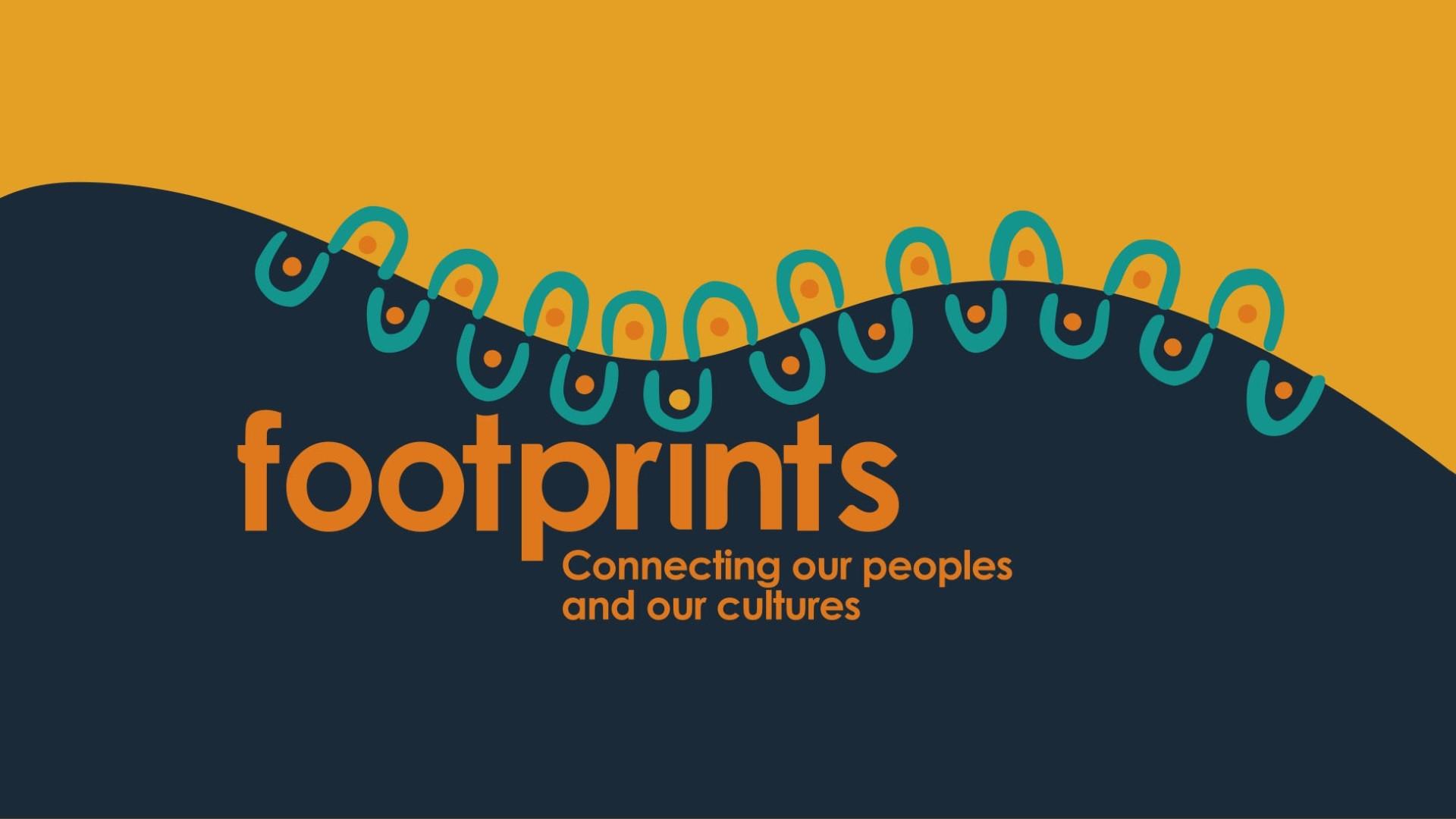
Footprints is a framework that supports APS employees to continually increase and enhance their cross-cultural knowledge and understanding.

This course should ignite your awareness about how our work and actions contribute to climate change and what it means for you and how it affects your work.
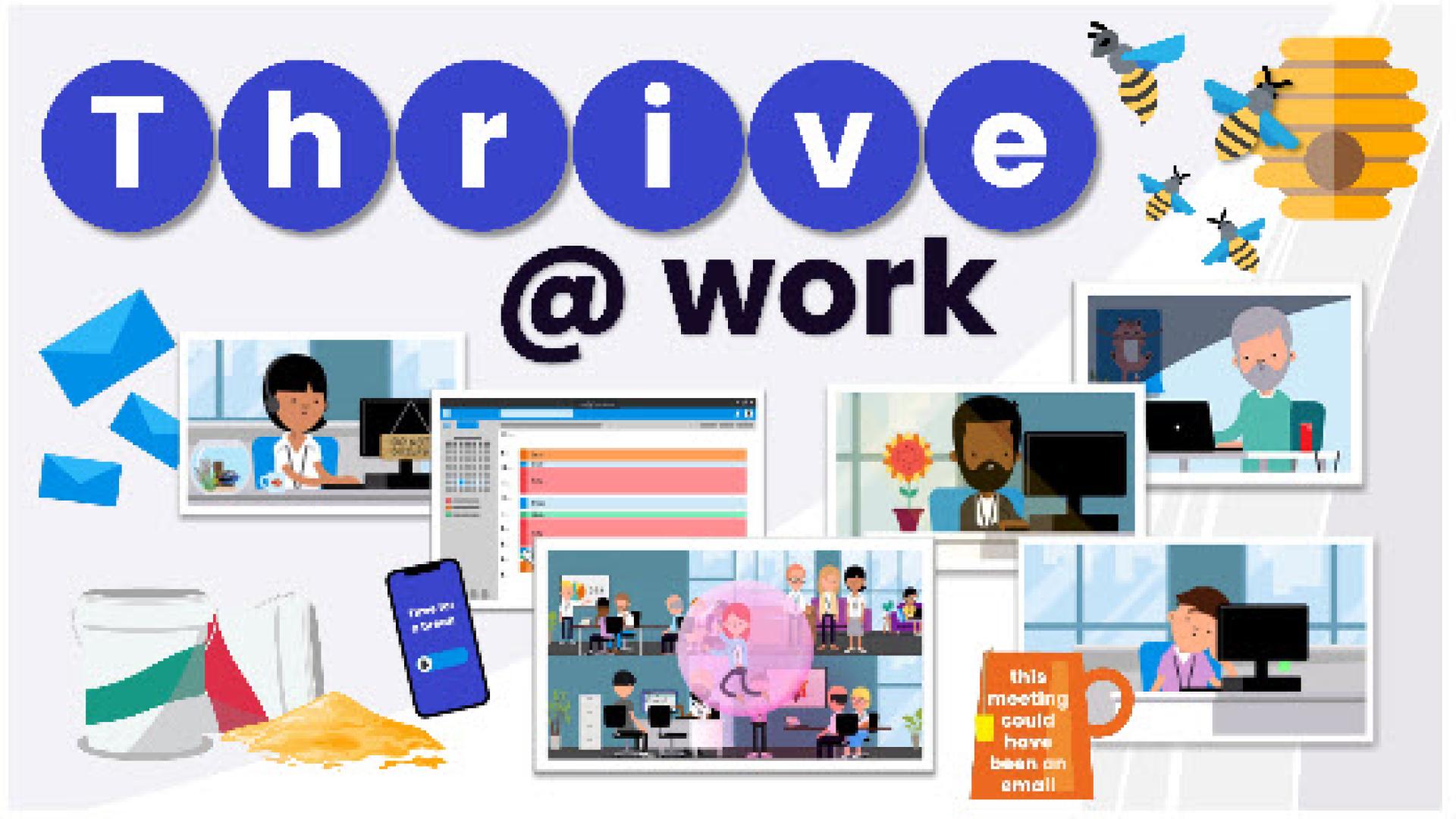
Thrive@work – In today’s fast paced world, maintaining a healthy work-life balance and optimising productivity can be challenging.
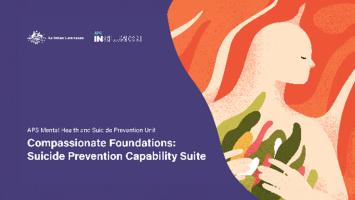
Compassionate Foundations is designed to support you to build your interpersonal and self-care skills to foster positive human-to-human interactions that promote connection and understanding.
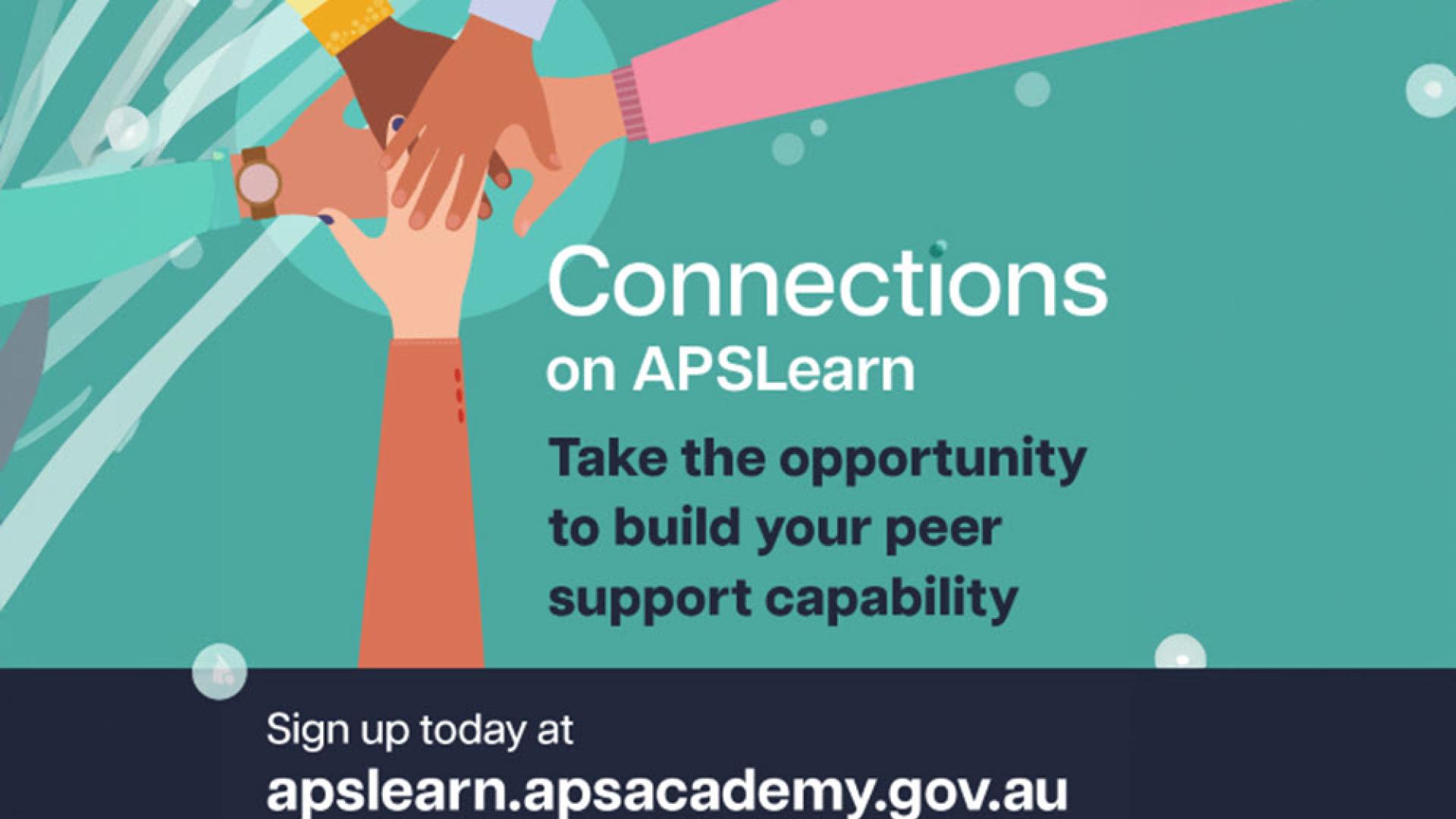
Connections is a key step in your workplace peer support journey, providing you with foundational knowledge and skills for the role.

Understand how to create and maintain high-performing teams where work is aligned with government priorities. Learn how to analyse and describe high-performing teams, identify the enablers and barriers, and explain the management practices required.

Identify and examine internal and external work relationships, their relevance and the importance of achieving mutual success. Share and develop good ways to plan for and participate in meetings.

The course introduces participants to coaching conversations and the manager-as-coach model.

This course is designed to improve the way APS employees coach and manage others so they can deliver improved outcomes, ultimately resulting in higher APS productivity.

This course teaches the skills to respond to workplace and organisational conflict. This practical skills-based program explores the causes of workplace conflict, ways to identify and address the early signs, tools to reduce anxiety and talk skilfully about difficult issues and behaviours in a professional and resilient manner.

This program teaches the skills to respond to workplace and organisational conflict as a manager, including the tools to coach and support others.

This course is aimed at employees seeking to understand the key processes and considerations for preparing a New Policy Proposal.

Understand the project management process and tools for implementation and evaluation. This includes project planning, resource identification, implementation, deliverables and milestones, risk assessment, stakeholder management and governance.

Interactive course on editing and proofing written text. It includes writing skills, editing and proofing methods. You will be able to enhance documents for correctness and clarity.

This program helps to identify the benefits of working effectively with stakeholders. Understand the most appropriate stakeholders and the most appropriate form of engagement.

This program educates Australian Public Service (APS) staff on the SFIA framework and how agencies can use it. It is designed as a series of information sessions.

Take an in-depth look at shaping strategy with a sense of purpose and direction, using information and opportunities, showing judgement and common sense. Use environmental scanning and best practice models and tools to help anticipate the consequences and trade-offs of actions.

Understand strategy processes and language. Learn methods and models while discussing and sharing professional experiences, thought practices and operating strategically in the APS.

Learn about the business context of the APS as well as develop skills and share high-value work practices required to effectively provide professional executive assistance.

The program, delivered across four modules, focuses on four key topics to build foundational strategic workforce planning capability across the APS.

Understand the work level standards, capability requirements and behavioural expectations at the APS 5 level detailed in the APS Work Level Standards and the APS Integrated Leadership System.

Understand the critical role requirements of EL 1's through the APS Work Level Standards and capabilities and behaviours identified in the APS Integrated Leadership System.

Emails are written more than any other document. It is important to know when an email is the most appropriate form of communication, and how to maximise effectiveness when emailing.

This course outlines the knowledge, tools and techniques required to lead projects and teams at the executive level.

This program will increase the confidence of managers in using formal authority to achieve business outcomes. It includes a series of workplace simulations and role plays.

This eLearning module explores the APS model of Performance management.

What is the role of management and leadership in times of change? Explore personality types, identify and adopt models of change management and understand its application in the workplace.

This course covers the role of the secretariat when working in government, teams and stakeholder groups. Examine protocols and learn to coordinate and prepare meeting agendas and other documents.

This course assists those on selection committees to conduct effective selection processes. Examine relevant legislation and principles guiding staff selection and retention to get the best candidate.

Gain practical and usable knowledge on cabinet submissions and the Cabinet process, leveraging the knowledge of Prime Minister and Cabinet’s Cabinet Division.
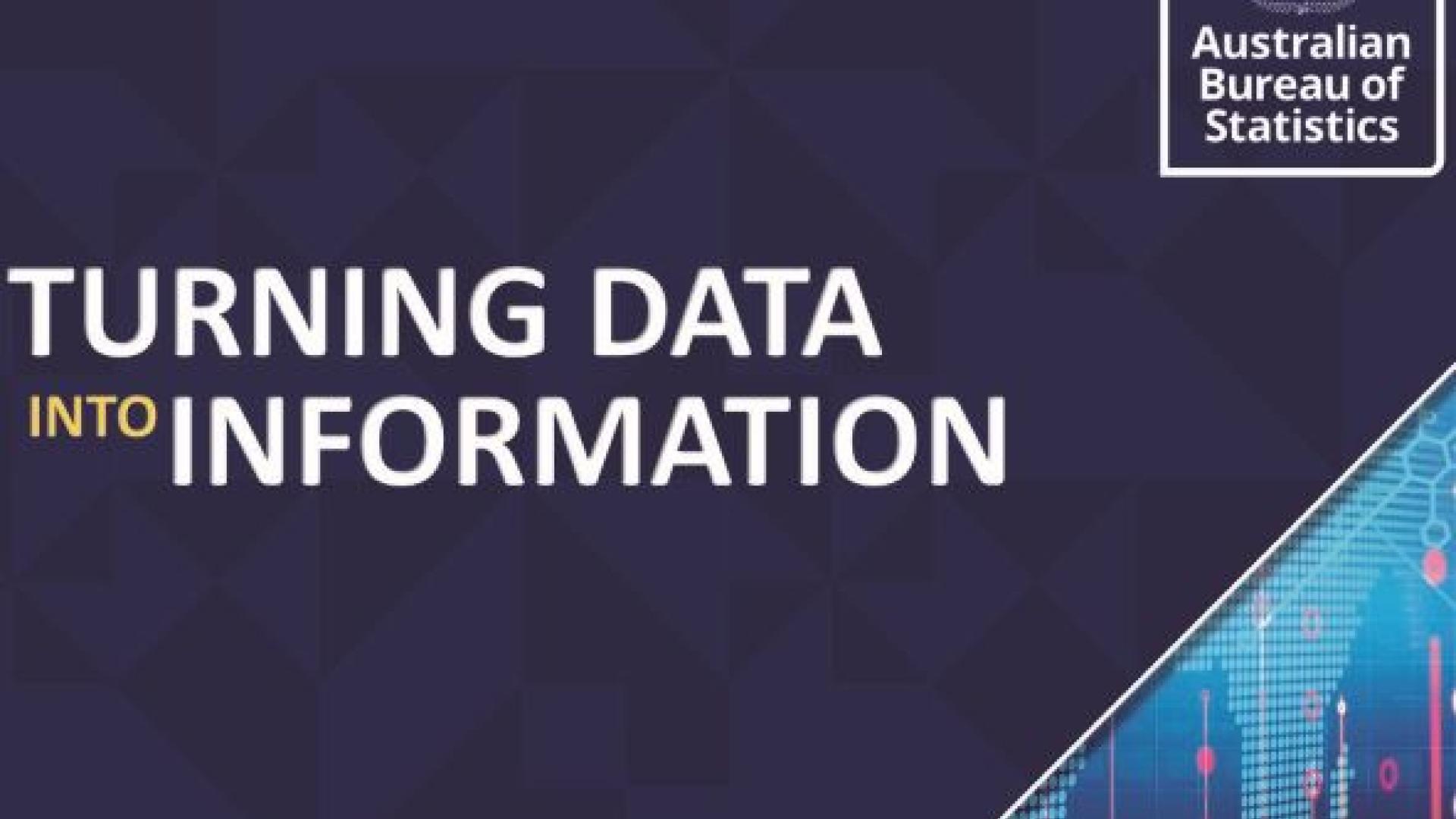
The Turning Data Into Information course is designed to build your analytical skills and equip you with a range of statistical tools and techniques that will help you both understand and analyse data in the context of a research question or issue
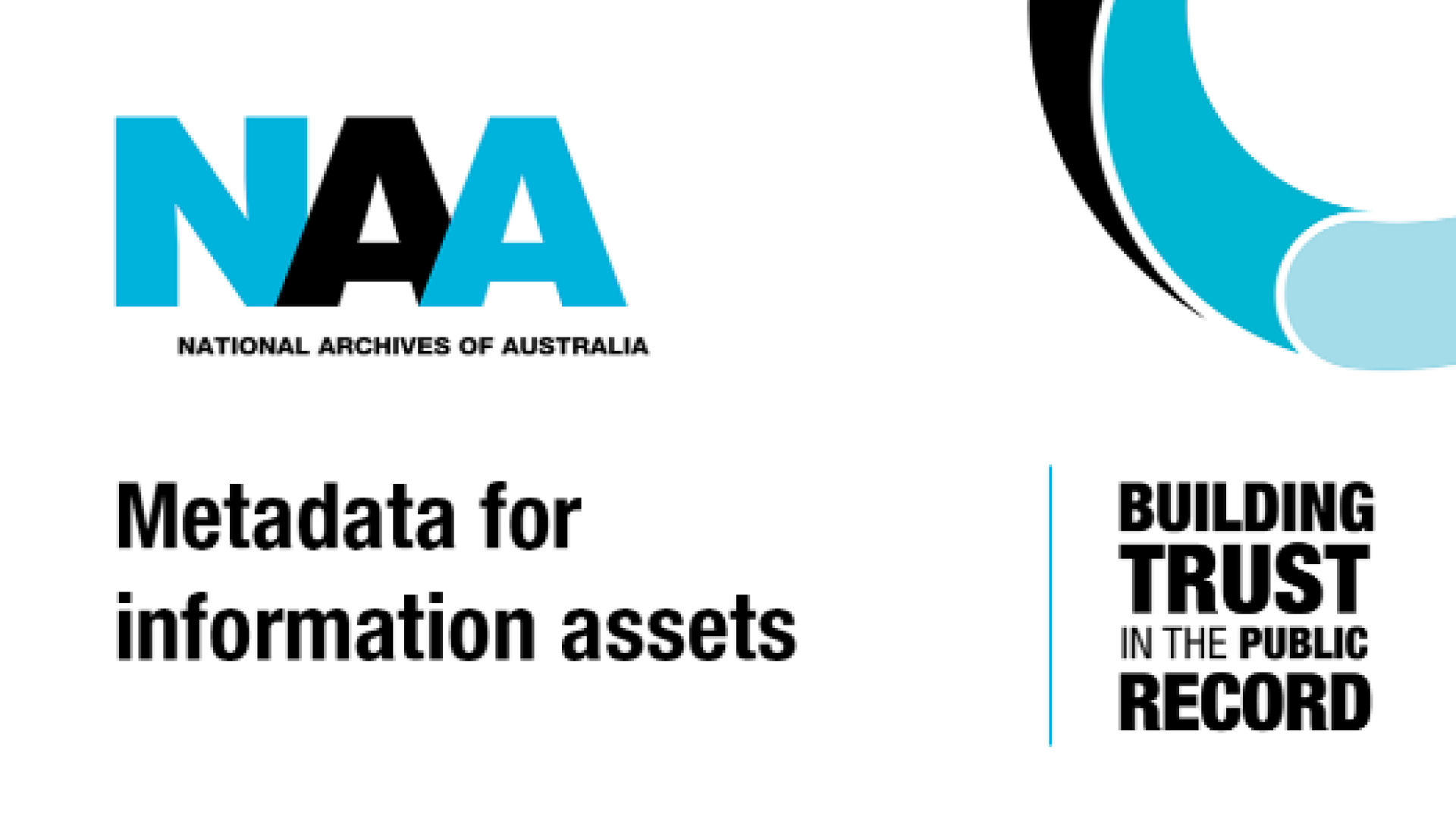
This course is provided to increase awareness and skills for Australian Government (Commonwealth) agencies to make use of metadata to help manage information assets (data, information and records).
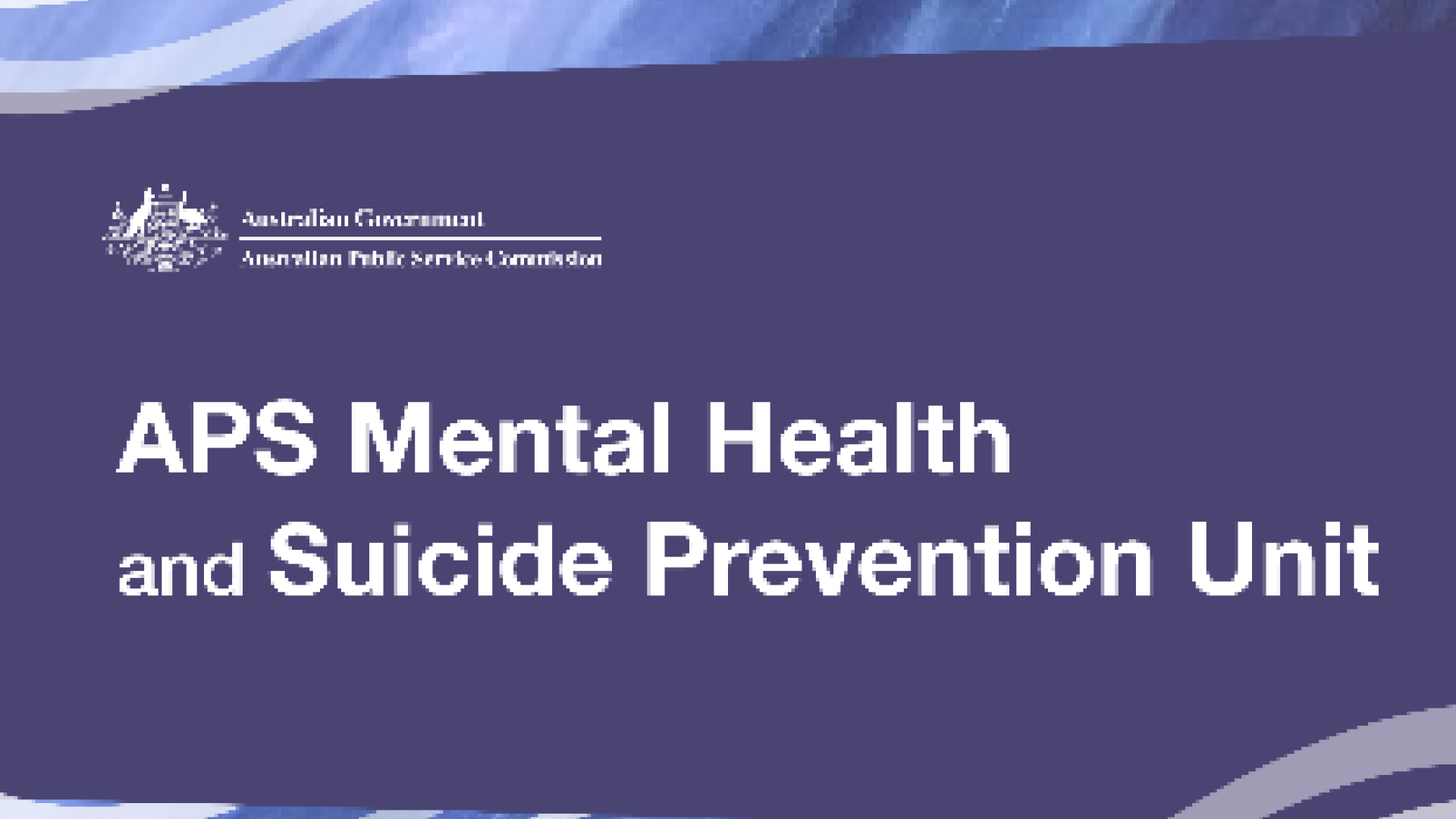
Access practitioner tools, practical guidance, resources and capability programs to align agency practices with the APS Mental Health Capability Framework.

This course will help build your foundational knowledge about important aspects of Australia’s system of government, structures, and frameworks that relate to your work in the APS.

This course introduces APS staff to evaluation in the Australian Government context. Concepts are covered with Commonwealth Evaluation Policy principles and practical examples.

This course introduces public servants to program logic models for policy, project and program development, implementation and evaluation. Program logic models are visual tools for thinking about the way an intervention is intended to create a desired change.

This course introduces APS staff to benefits realisation management and provides practical examples of its application.

This course will assist APS policy, program and project staff to understand what randomisation is and how to apply it in their own work.

This module is about identifying job roles that are crucial to achieving organisational outcomes and become a priority for workforce planning efforts. It’s a foundational concept for workforce planning.

This module teaches the capability to forecast workforce demand and supply. Forecasting is used in all types of workforce planning to inform decisions about the future.
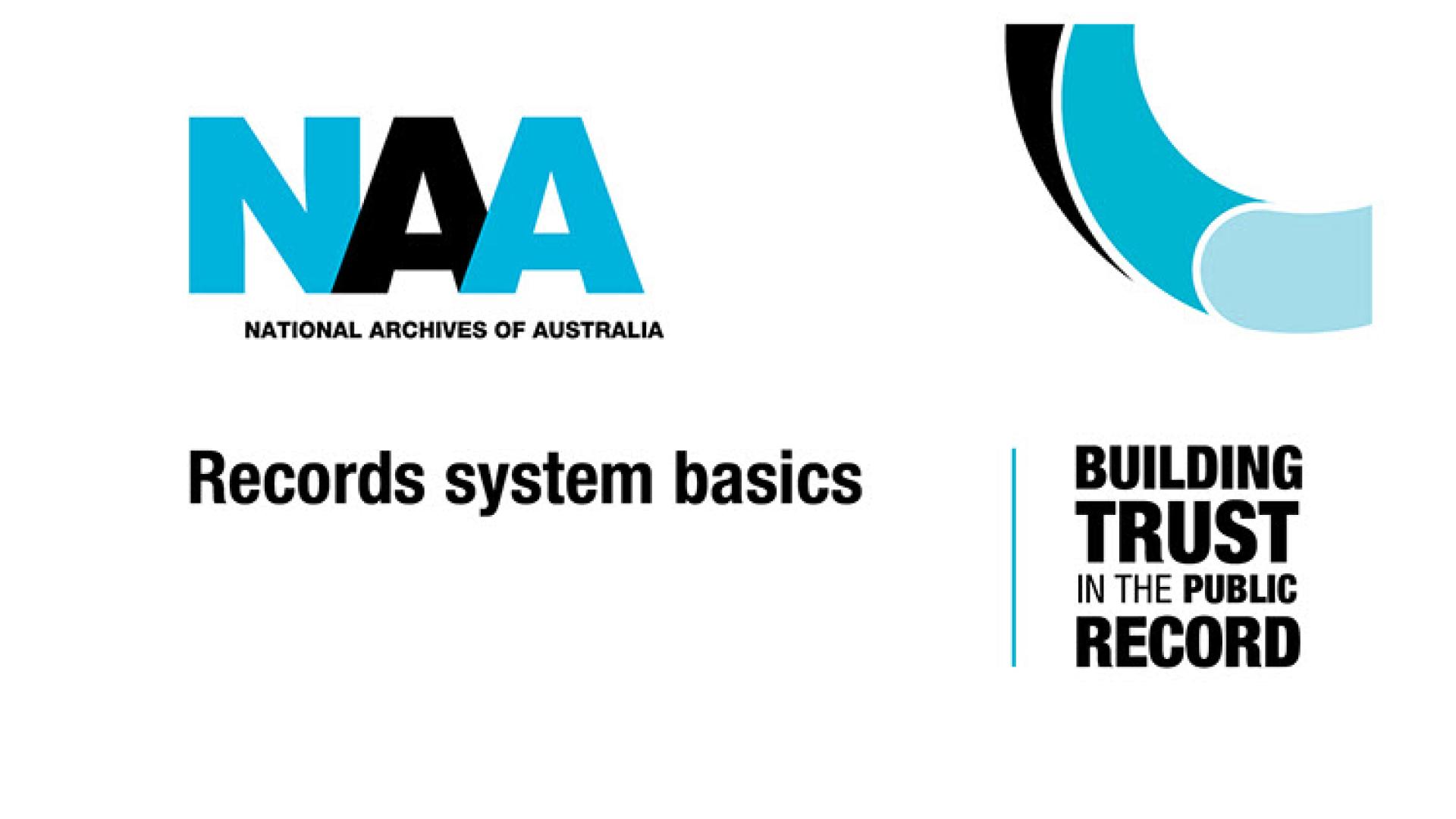
This eLearning course will help to understand fundamental concepts of records systems used in Australian Government agencies. The course can build a professional understanding of these concepts helpful for anyone working in government.
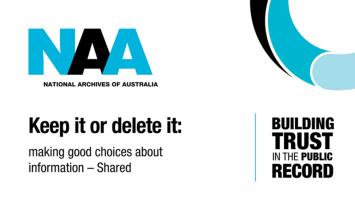
National Archives of Australia provides guidance on information storage decisions. It provides advice about the different types of business information agency staff and contractors can or can't destroy as part of their daily work.

Explore aspects of influence and the psychology of persuasion. Understand how verbal and physical language affects interpersonal exchanges, including negotiations, meetings and briefings.

This course examines aspects of influence and persuasion and the negotiation skills essential for managing and leading at the executive level.

This module explores practical tools and techniques to undertake program management, to effectively support workforce planning implementation including governance, monitoring evaluation and iteration.

The Workforce Planning Boost Program is a collection of modules that target the development of technical workforce planning skills. These units have been co-designed by the APS Centre of Excellence for Workforce Planning, with workforce planning experts and academics from across Australia.
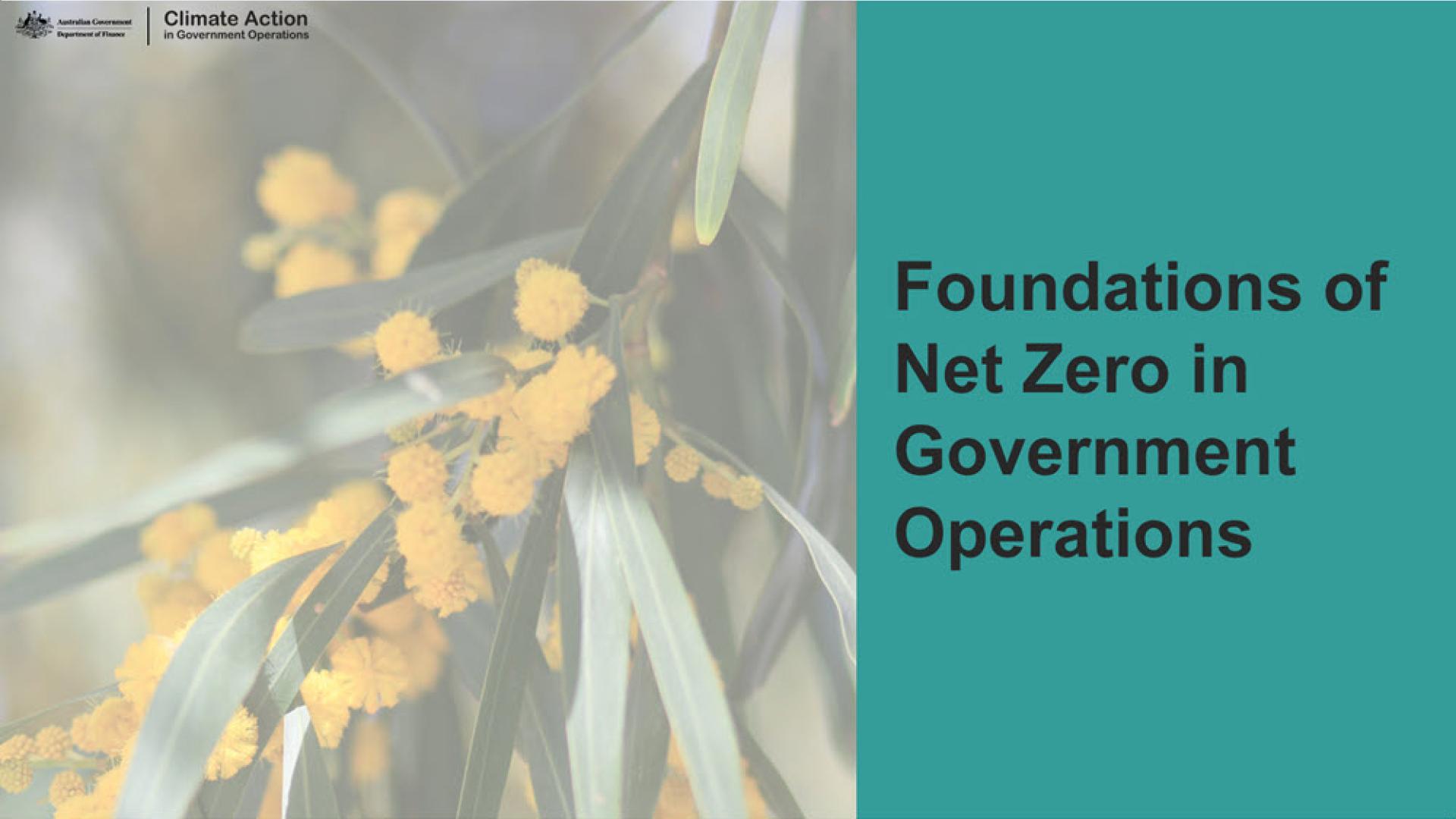
This course covers a foundational understanding of climate science topics, detailing the mechanisms and consequences of climate change, and the significance of Global Warming Potential and Carbon Dioxide Equivalent values.
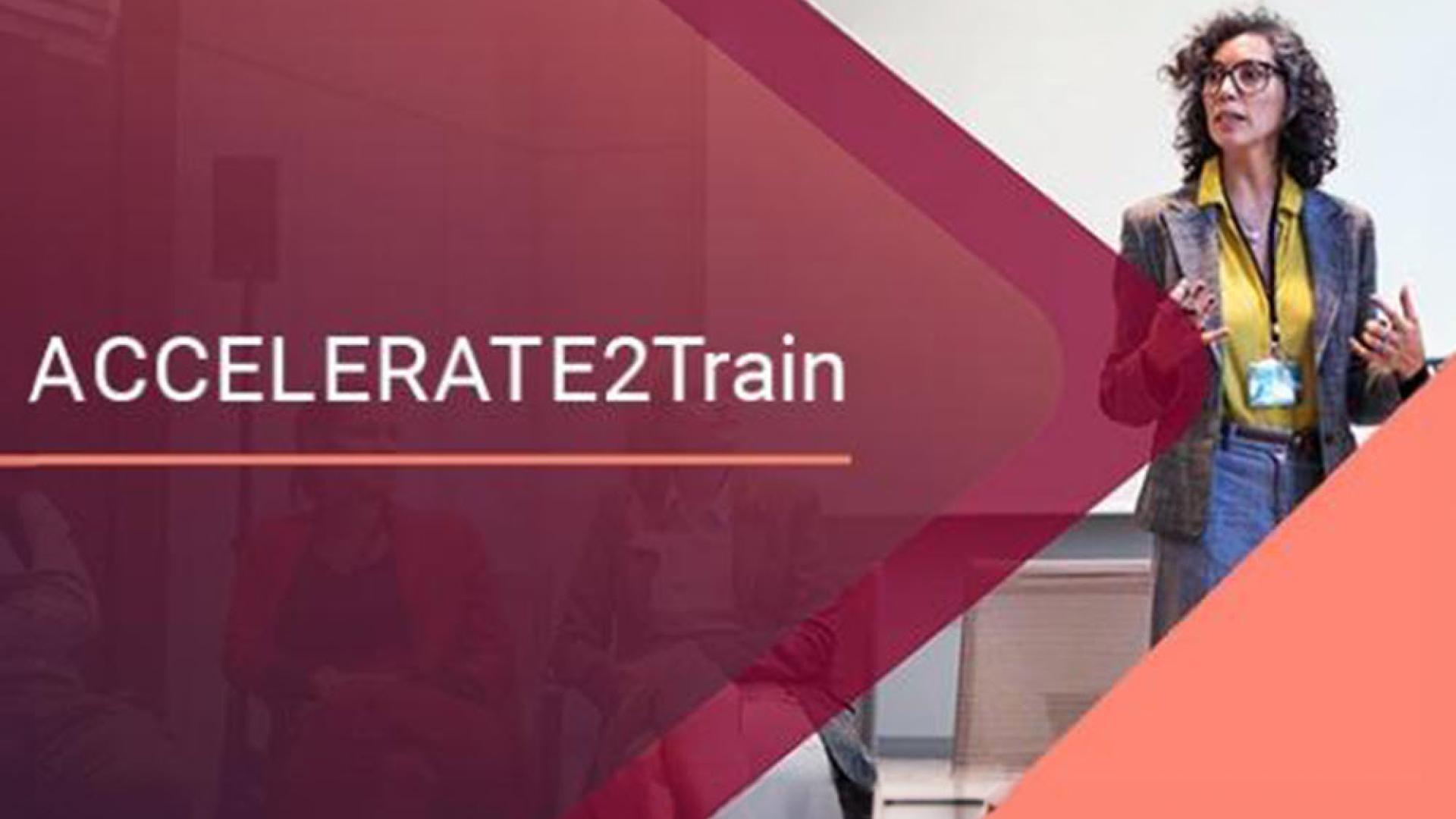
The purpose of this ACCELERATE2Train course is to provide participants with the opportunity to gain valuable skills and knowledge in training techniques when delivering in a virtual environment.

The purpose of this ACCELERATE2Present course is to provide participants with the opportunity to gain valuable skills and knowledge in presentation techniques when delivering in a virtual environment.
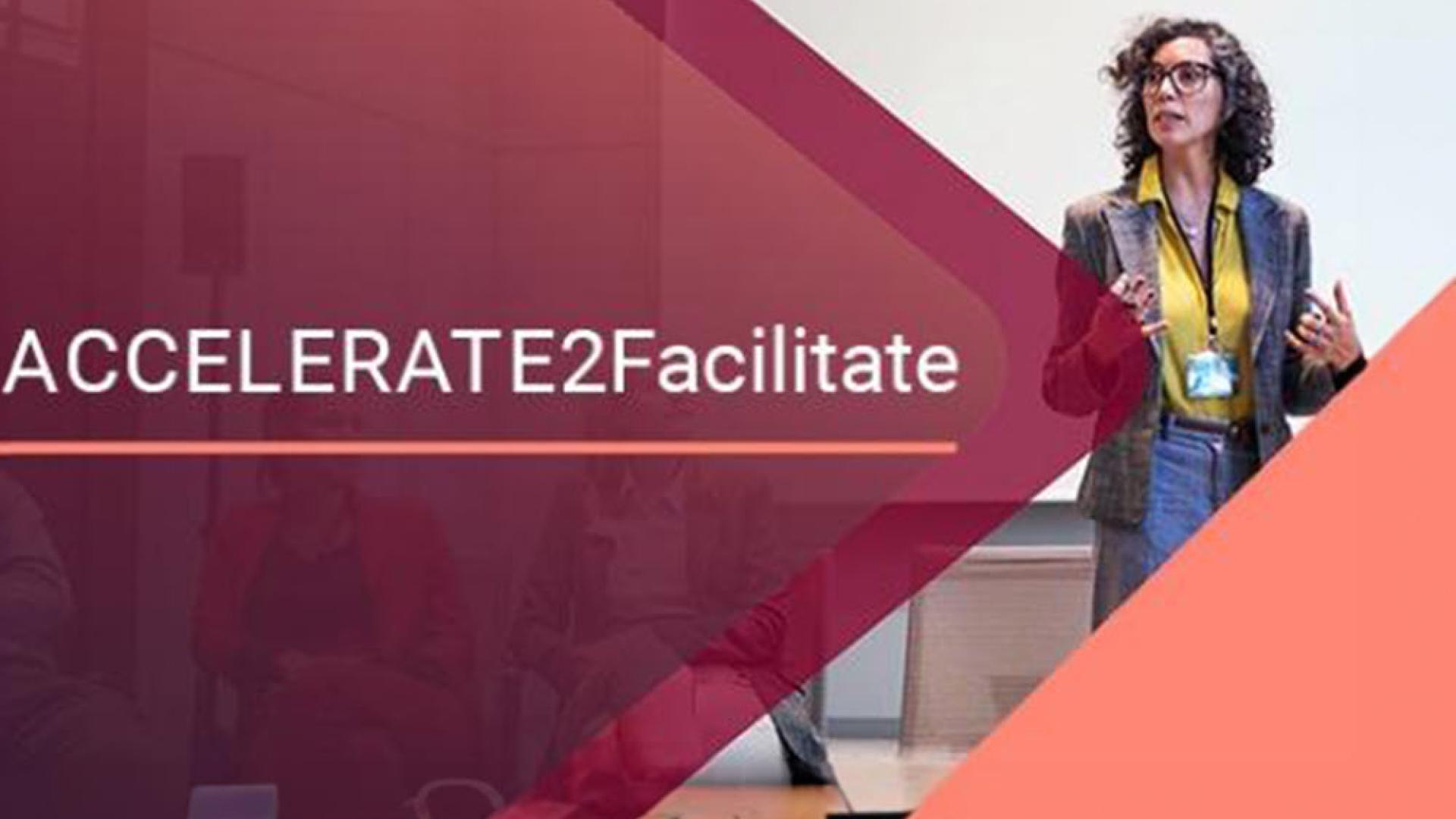
The purpose of this ACCELERATE2Facilitate course is to provide participants with the opportunity to gain valuable skills and knowledge in facilitation techniques when delivering in a virtual environment.
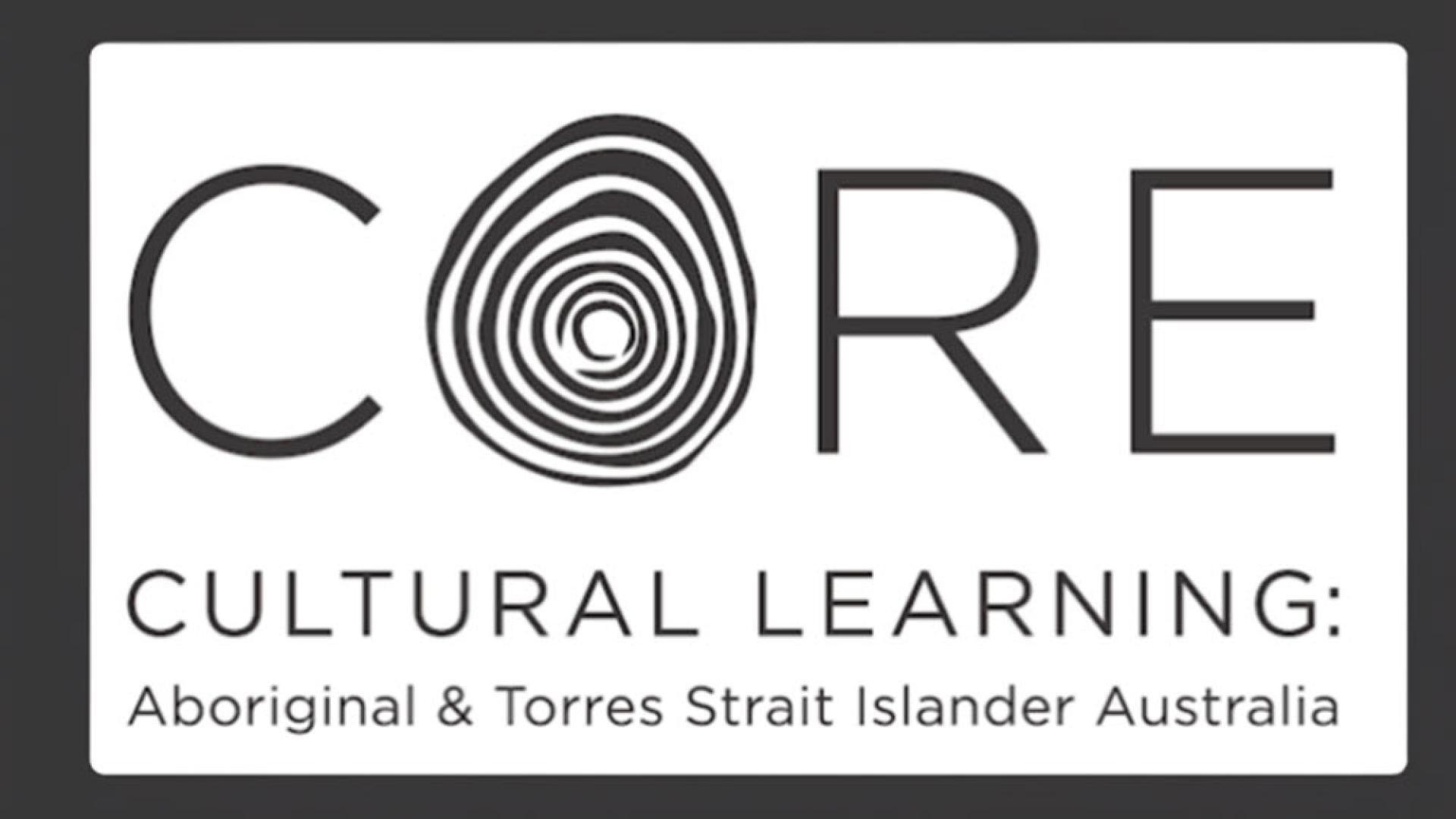
A foundational eLearning course for the Australian Public Service (APS) on respecting and understanding Aboriginal and Torres Strait Islander peoples and cultures.

The Coaching for Women in Data and Digital (C4WID) Program focuses on group coaching to help you develop leadership skills in data and digital related roles within the public sector. The program will help you reflect on your strengths, values and career goals, and dedicate time to professional growth in a supportive context.
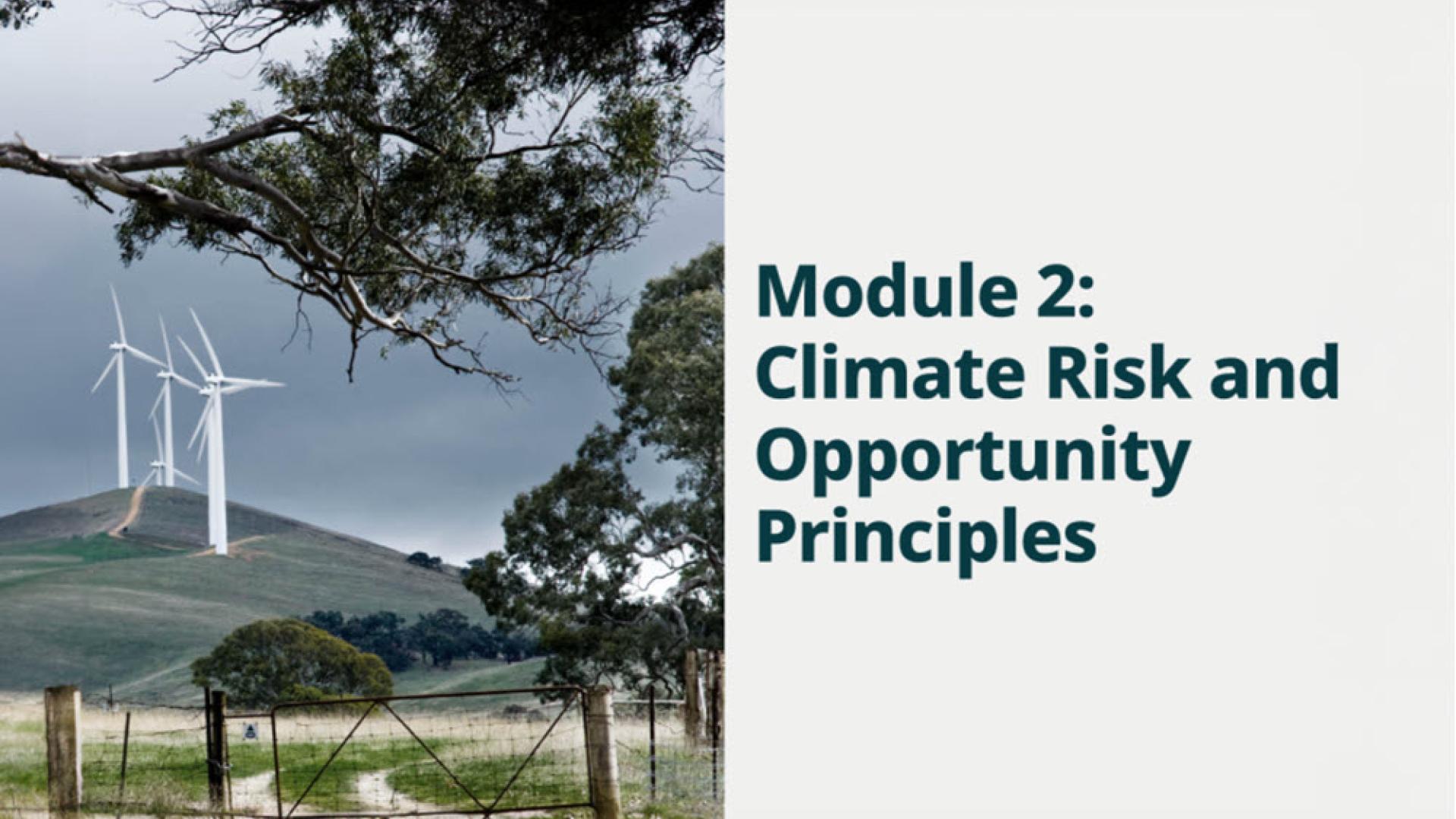
Climate risk and opportunity principles will build user understanding of the types of climate risks and opportunities that might be encountered through their work. Learners will be challenged to consider how their programs, projects, and policies interact with climate risk and possible opportunities relating to their work.

Applying the climate risk management guide, is designed to step users through the the process of assessing and managing climate risks and opportunities in the Australian Public Service.

The APS job application process. Practical exercises help participants write applications and perform well in selection activities and interviews.

This package defines the four core elements required for delivering great policy advice: being clear on intent; being well informed; solutions are practical to implement; and advice is influential.

This course is designed to enhance data leadership knowledge and capability, focusing on the role data plays in the work of the public service and critical issues that impact on the availability, integrity and use of data.

The Change Management Practitioner program is an online program offering extension learning to participants who have completed the Change Management Foundation Program.

The Regulatory Professional Practice Support Program has been designed to support regulatory practitioners to navigate immediate challenges and strengthen commonly required skills and capabilities.
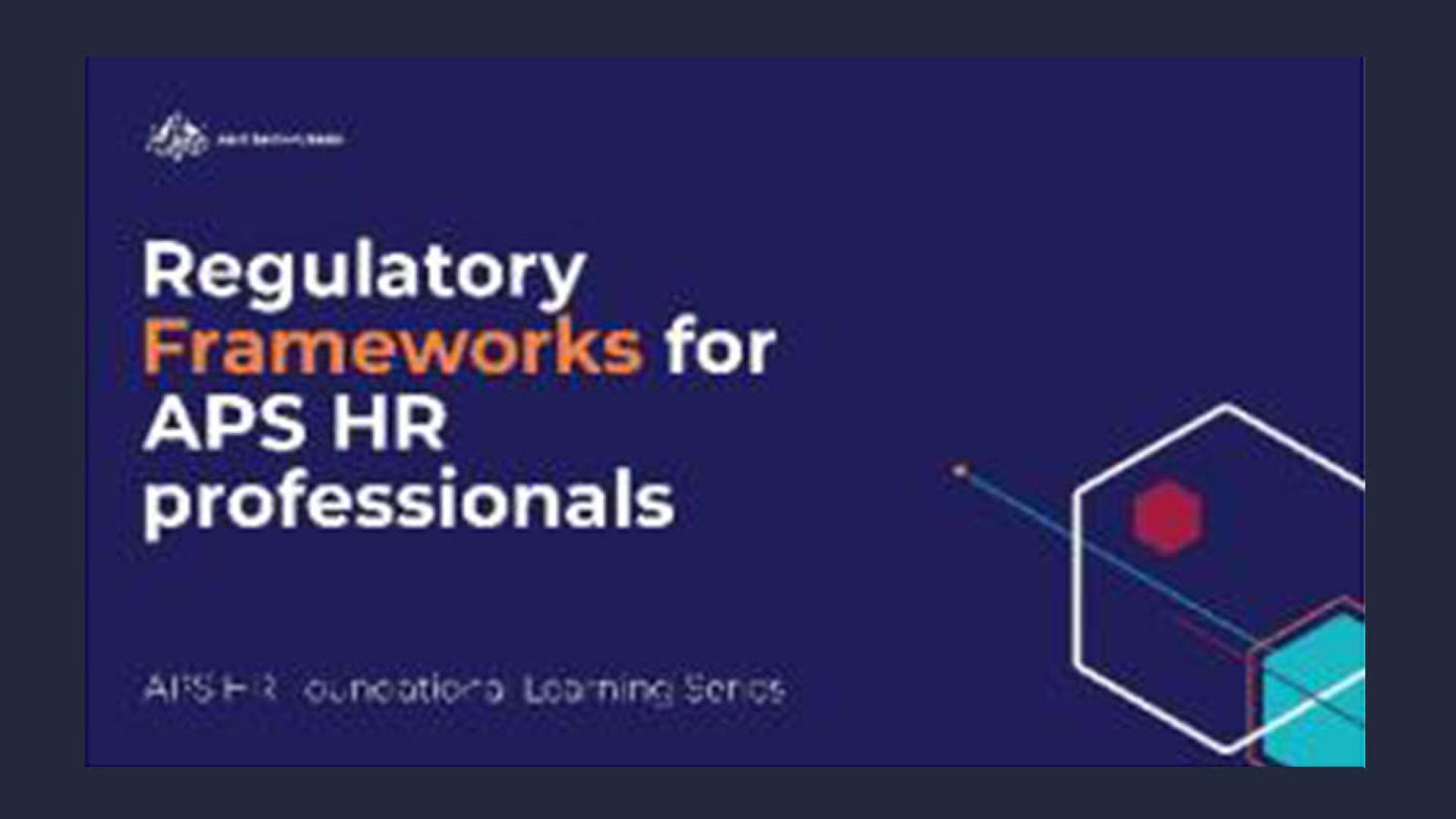
This module provides information on regulatory frameworks for APS HR professionals by providing access to the frameworks (via links and webpage references) and explaining how they can be applied to relevant situations.
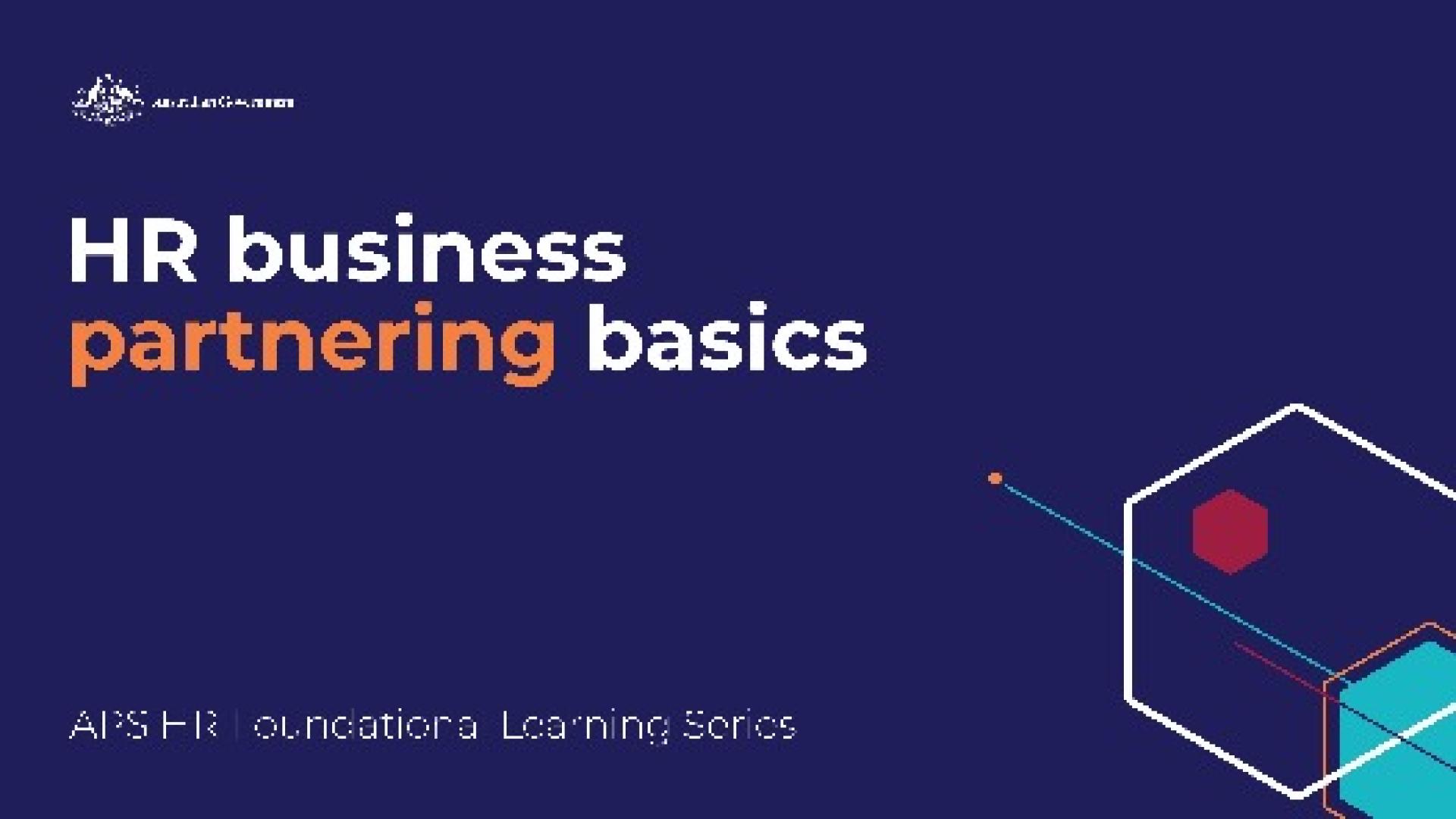
Strategic liaisons between HR functions and business areas are fundamental to delivering quality HR outcomes in the APS.
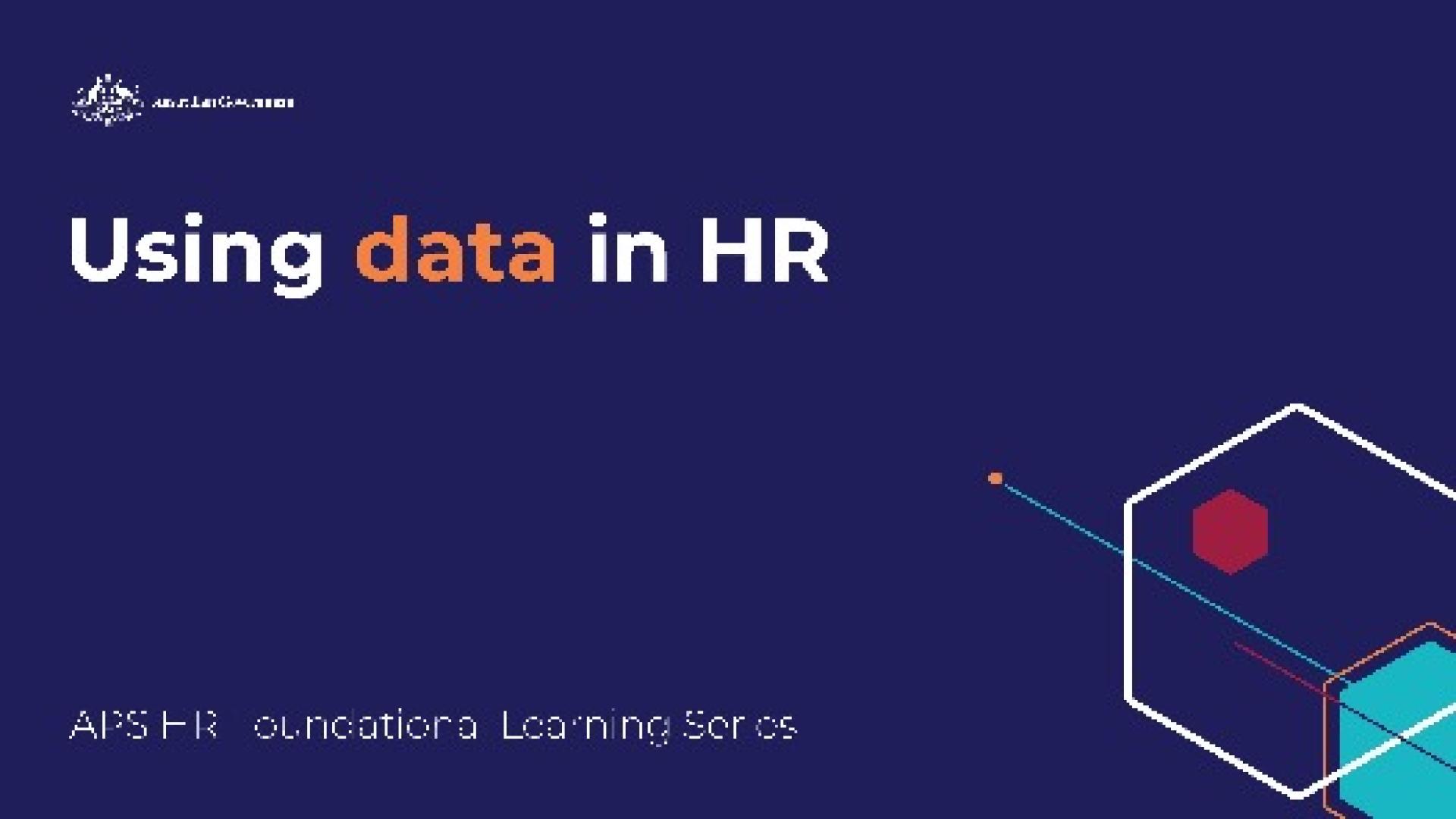
HR data is used in almost every aspect of recruitment, retention, development, innovation and monitoring of workforce productivity.
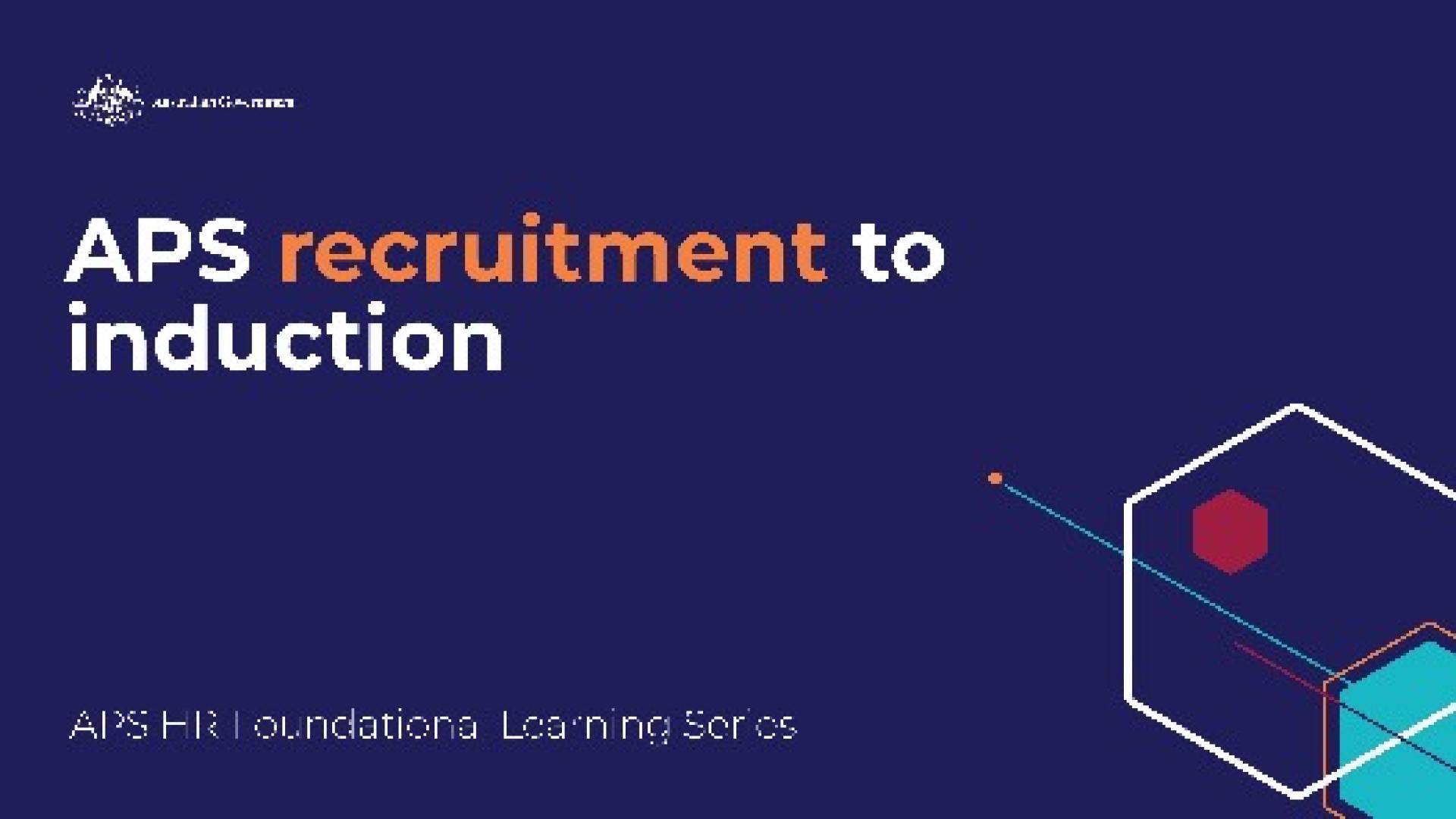
APS recruitment processes need to support sound, evidence-based decision-making. The Public Service Act 1999 requires that engagement and promotion decisions in the APS are based on merit.

This is a practical and participative course to build confidence in giving presentations. Examine the learning techniques, structures and elements that create and deliver good presentations.

All workplaces use communication and our overall job effectiveness is strongly influenced by how well we communicate. Learn how to present information clearly, concisely and in a compelling manner.

This course will introduce you to the key principles, your obligations and expected behaviours regarding how records are managed in the Australian Public Service.
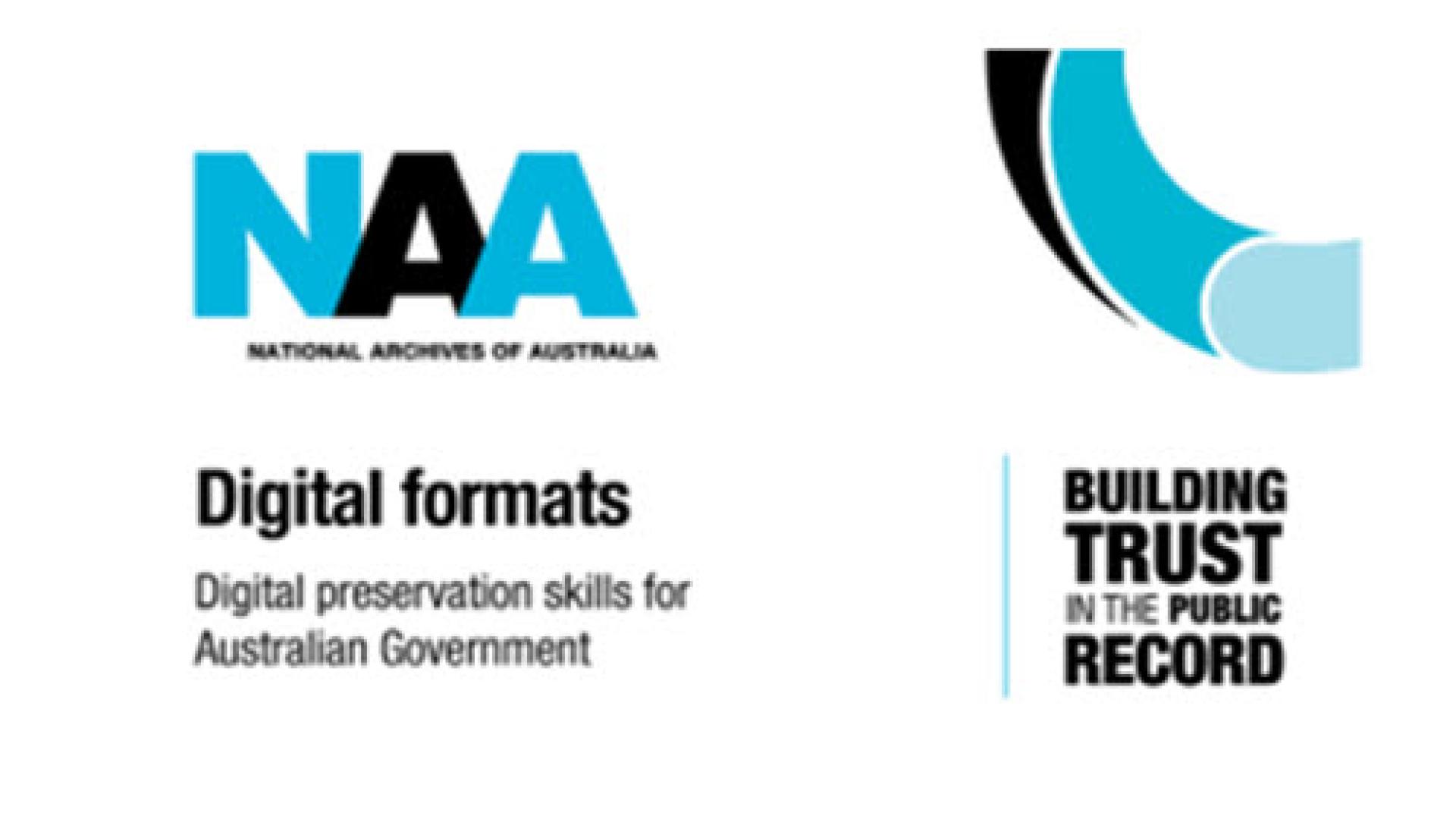
This e-learning module covers basic concepts and terminology related to digital preservation in Australian Government agencies.
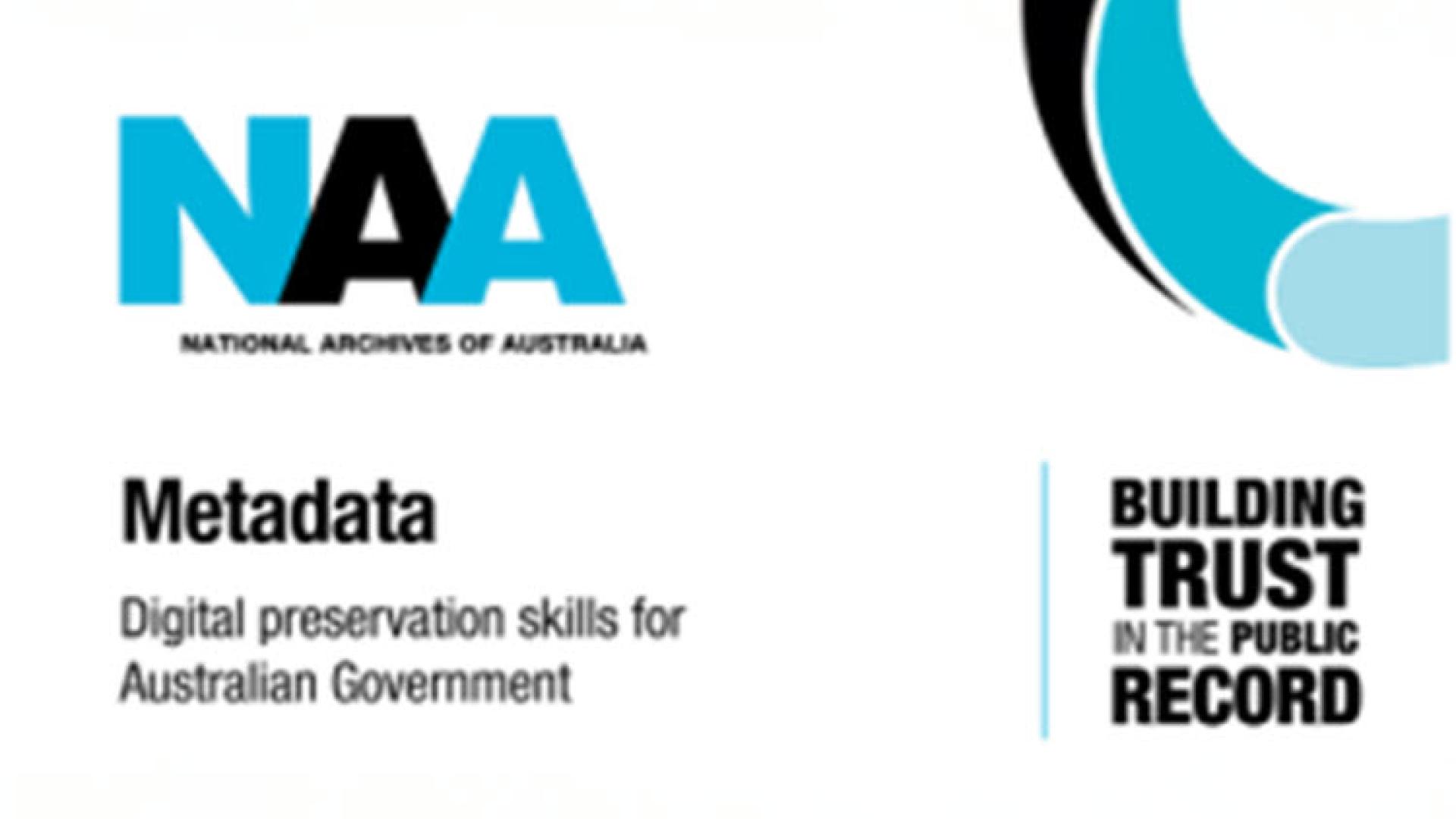
This e-learning module introduces the role of metadata for digital preservation in Australian Government agencies.
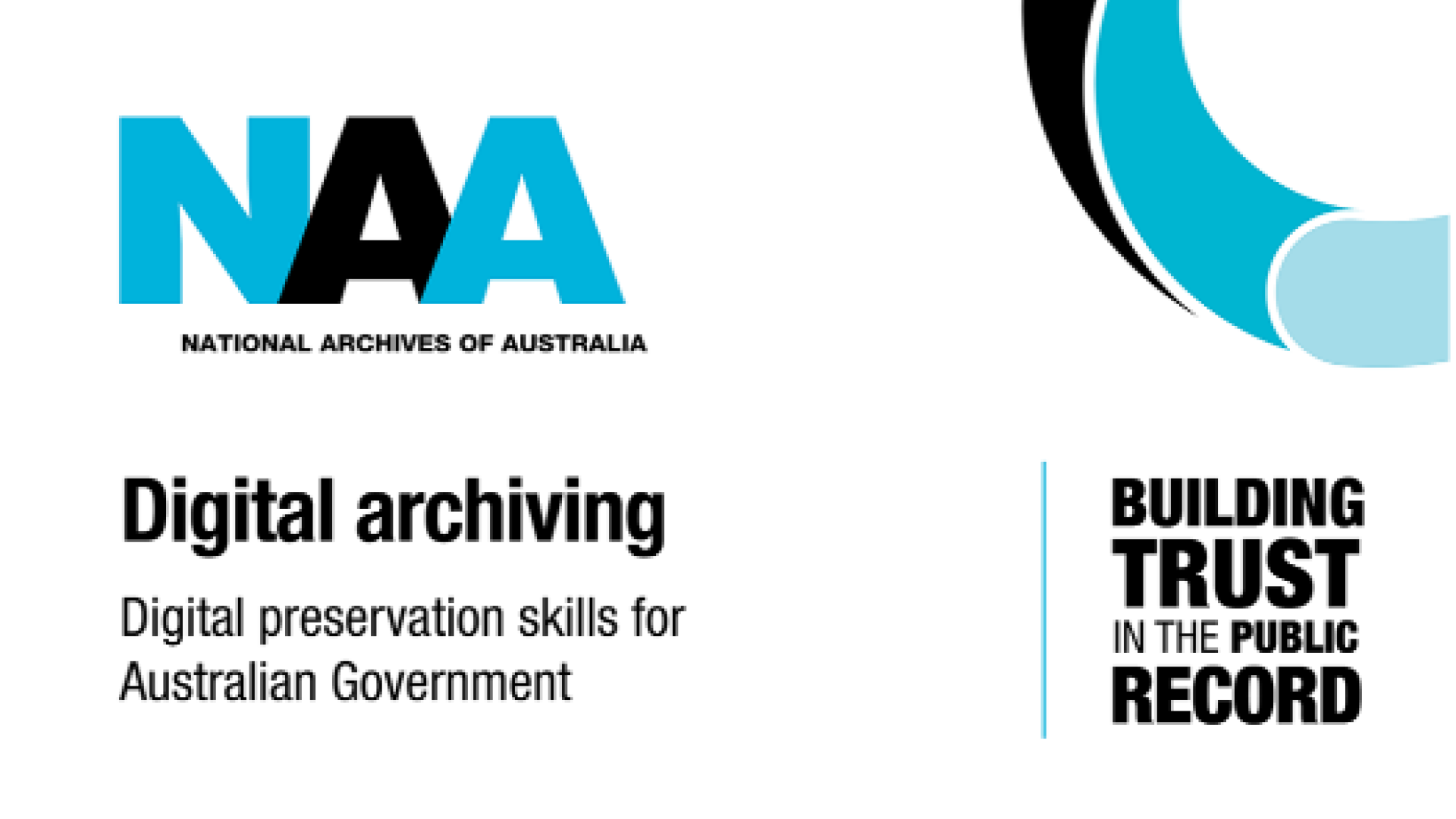
This e-learning module introduces concepts and workflows for digital archiving in Australian Government agencies.

By undertaking this course you will learn what Work Health and Safety (WHS) is, why it is so important, key WHS principles and your responsibilities.

Learn about protective security arrangements in the public service, including physical security, information security and cyber security.



